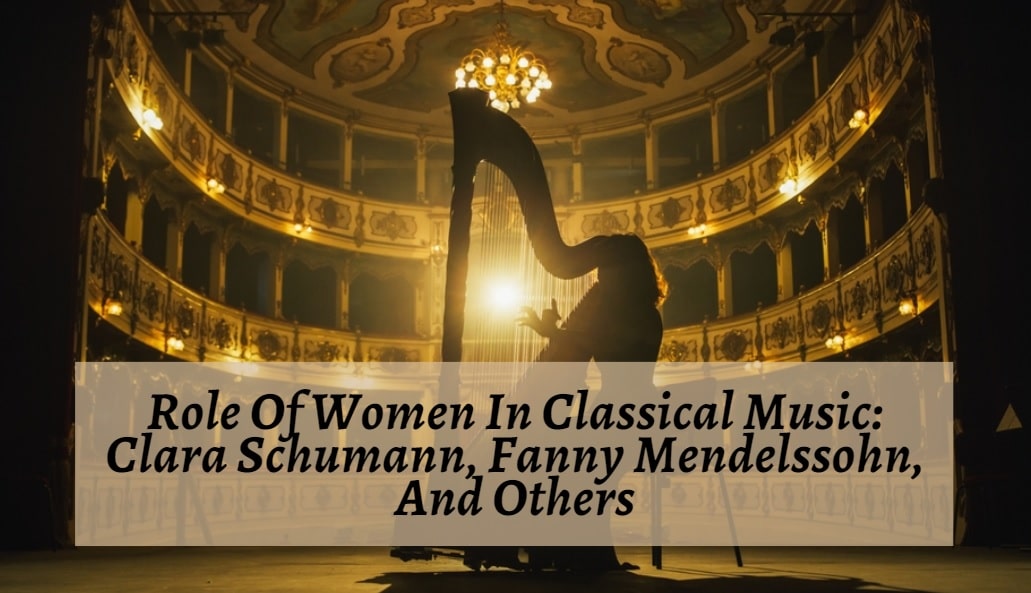
I am going to begin this article with a small confession. When I saw this title, it made me reflect on my musical education.
What it shamefully highlighted was the fact that during most of my many years studying, female composers rarely appeared in pieces I was to analyse, listen to or perform.
Worse still was that this perpetuated the false idea that composition was the domain of men. It was only by happy accident, on hearing pieces by female composers that I came to realise the enormous error in what is now an old system of musical education.
You need only take a glance back through the last thousand years of Western Classical history, for example, to learn that numerous composers were women.
In many cases, they lived during a period where cultural conventions did not encourage women to compose music or at times even perform it unless it was within strict margins.
It has only been perhaps in the last eighty or so years that female composers have begun to find their rightful footing and receive the acknowledgments and accolades they deserve.
Role Of Women In Classical Music: Clara Schumann, Fanny Mendelssohn, And Others
Hildegard of Bingen was one of the most influential, mystical, and now celebrated female composers (1098-1179). She is one of the earliest composers from who compositions have survived and of whom we know something reliable.

Often the further back you travel in history, the more difficult it can become to discover composers who were women let alone uncover surviving manuscripts.
Hildegard von Bingen composed an impressive quantity of music, much of it sacred, alongside writing extensively about her visions and prophesies. ‘Scivas’ is the title of one such work that dates from the mid-12th Century.
Many recordings of her works are now in circulation as her writings have been translated into English. Here is a link to her complete works for further exploration and pure enjoyment.
As we move forward through musical time, we unearth a few names of women composers who against all odds achieved their place in history.
These include Francesca Caccini (1587-1641) who amongst other credits is thought to be the only woman who successfully had her opera, truly a comic ballet, performed. Its title was La liberazione di Ruggiero (1625).
Barbera Strozi (1619-1677) was perhaps more celebrated as Venice’s top singer in the middle part of the 17th Century. Strozi was multitalented and composed eight substantial volumes of dramatic vocal music.
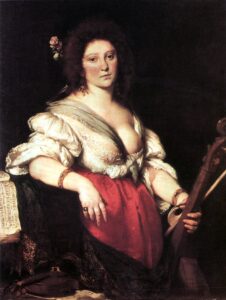
Much of her work reflects her incredible vocal talent and virtuosity. Élisabeth Jaquet de La Guerre came from a renowned family of musicians. She had a remarkable talent for playing the harpsichord and received patronage from none other than King Louis XIV.
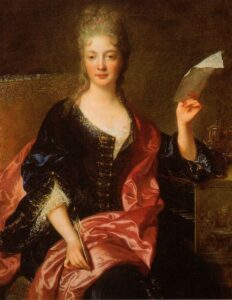
Her compositions span an interesting variety of genres from an opera titled Céphale et Procris (1694) to harpsichord pieces and a secular Cantata.
Duchess Anna Amalia of Brunswick-Wolfenbüttel (1739-1807), a powerful German noblewoman and friends with Goethe and Schiller, composed many more works than have survived.
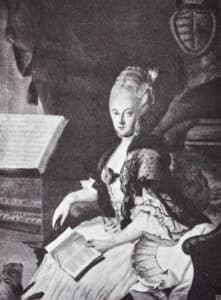
She left us to enjoy a single symphony, an Oratorio, a Flute Sonata, and an opera from 1776 titled Erwin und Elmire.
As we move closer to the 19th Century, we encounter names that, today at least, have become household stalwarts. Fanny Mendelssohn‘s life spanned only forty-two years (1805-1847).
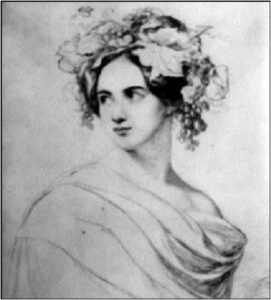
During this brief time, Fanny is through to have composed around 450 pieces. Her Father did not provide much encouragement for her musical gifts but tolerated her creativity.
Likewise, her famous brother Felix recognised her extraordinary abilities but did little to properly promote and support his sister.
Fanny on the other hand was a rock for Felix, full of admiration, guidance, and support. She died conducting one of his oratorios.
Of the many compositions Fanny wrote some have found their way into secure places in musical history in ways other works have not. Fanny’s music has the sparkle, whit, and discipline of her brother but stands as uniquely hers.
One wonders just how much of an influence she was on Felix. Try listening to her piano cycle titled Das Jahr.
Clara Schumann (1819-1896), maybe the most famous female composer of her age. Some of this notoriety can be attributed to her husband Robert Schuman and her close relationship with the young Johannes Brahms.
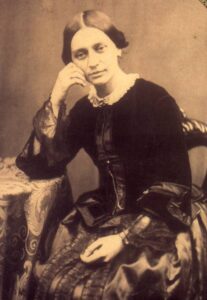
Clara gave Brahms an immeasurable degree of support and encouragement without which he is unlikely to have become the composer he was.
She performed as a concert pianist for much of Clara’s life, often premiering many of Robert’s works. Clara also taught music at the Leipzig Conservatory and composed some pieces until family commitments, including eight children, cut short her compositional creativity.
It is always difficult to select a few works to focus on but the Piano Trio in G minor Op. 17 (1846) is a great entry point into Clara’s imaginative, beautifully crafted compositions.
Nadia Boulanger (1887-1979), along with her sister Lilly, greatly impacted the musical generations born at this time. Nadia and Lilly were both composers, but Lilly’s life was tragically short.
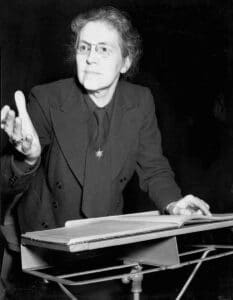
She died in 1918 after which Nadia did not compose another note. Nadia was a tour de force as an organist and conductor. She has become known for her invaluable teaching at the Paris Conservatory.
It was here she taught some of the most important composers of the future such as Aaron Copland, Lennox Berkley, and Elliot Carter.
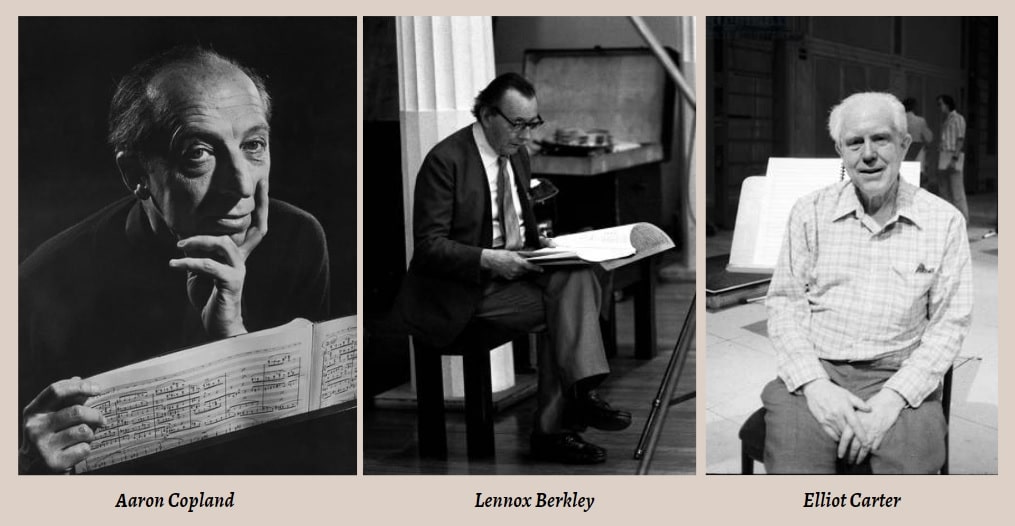
She published only a few compositions with her composition La Sirene winning her second place in the Prix de Rome. Here is a small sample of her brilliance.
Amy Beach (1867-1944) was an outstanding pianist and composer from America. Amy was considered a child prodigy making her public debut as a pianist in 1883. This was also the year of her initial compositions.
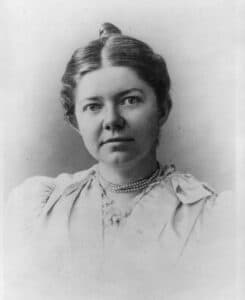
Amy Beach was one of the first American female composers to be acknowledged properly in Europe. This was no small achievement. She was also the first female composer to receive a performance of her symphony by the Boston Symphony Orchestra in 1896.
There are some three-hundred published compositions by Amy Beach. Of the later compositions, the opera Cabildo (Op. 149/1932), and the Piano Trio in A minor (Op. 150/1938) are amongst her finest works.
Whilst I am aware that I have omitted many noteworthy female composers of the past from this short article, I do feel it important also to name a couple of contemporary composers who have made significant contributions to the world of classical music.
Judith Weir CBE HonFRSE (1959) is a Master of the King’s Music in the United Kingdom. Weir has composed extensively for the stage in the form of operas and music theatre. Her catalogue also contains a wealth of chamber music and concertos.
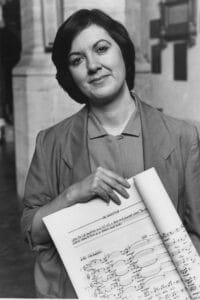
Nicola LeFanu (1947), daughter of equally famous and celebrated composer Dame Elizabeth Maconchy (1907), is both an educator and a composer.
Her works number over a hundred and cover an impressive array of genres from concertos to installations. Maconchy studies at the RCM under Charles Wood.
She won several prestigious awards for her early compositions that included a Piano Concerto and Violin Sonata. Today amongst her many works her strings quartets rank the most performed and popular.

Thank you for showcasing beautiful music and musicians